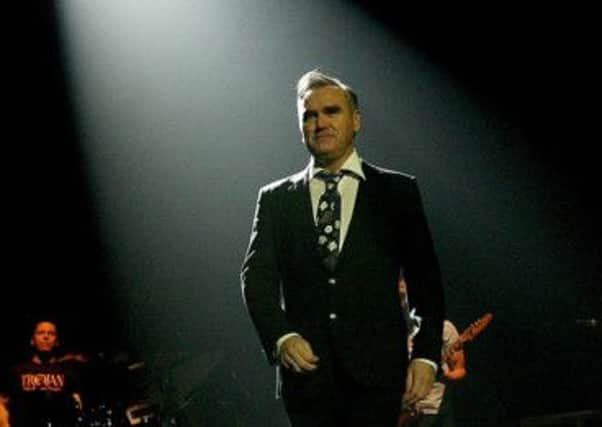Morrissey’s revealing Autobiography is no classic


The man behind the till promised he would slot Moz in between Melville and Poe where, no doubt, the singer would be happier, but the message was clear: here was a celeb confessional like any other, an airing of dirty washing, no matter how immaculate the covers.
On this level the book delivers. We have the revelation that the famous celibate had his first proper relationship in his mid-30s with one Jake Walters, a younger man with “BATTERSEA” tattooed inside his lower lip. There is also the requisite amount of score- settling – perhaps too much.
Advertisement
Hide AdIt is understandably important for Morrissey, who feels he has been swindled and misrepresented, to write more than 40 pages on the court case in which the drummer Mike Joyce successfully bid for a quarter of the Smiths’ earnings. Yet this section is numbing and feels like an imbalance, given that only 75 pages deal with the life of the band.
If Autobiography is at its worst when concerned with Joyce, it is at its best when channelling the spirit of another Joyce: James. The first quarter, which deals with Morrissey’s early years, owes something to A Portrait Of The Artist As A Young Man in its vivid descriptions, as if through the perception of a child, of “forgotten Victorian knife-plunging Manchester” where terraced houses are soot-blackened, Catholic guilt is ever present, teachers are sadistic, priests hateful, and the Moors murders are somehow emblematic of the whole stewed atmosphere of vulnerability, violence and evil intent. There is little in the rock biography genre to compare to this material.
Emerging, too, is a figure who provides the closest thing to a “Rosebud” moment. Morrissey’s uncle Ernie, who died at 24, was a bequiffed, angry man, with whom his nephew shared a love of James Dean. Ernie, we learn, “ached… to find something of value to do, and he cursed Manchester, and he cursed England through mists of pain”. Morrissey, on his uncle’s death, inherits his harmonica and – one assumes – something of his restless search for identity and meaning.
Autobiography is on occasion overwritten. Morrissey’s gift for conjuring images and moods overcomes at times his ability to structure sentences. He is a master lyricist but an apprentice writer of prose, so his book can feel flabby and flat; one can sense him straining for effect, which is not attractive, and there are times when it is hard to grasp his exact meaning. But it’s too simple to say he needs an editor. The book’s strength is the stream of consciousness of its first quarter; as his creative adult life gets going, the writing loses its force.
Had he been able to restrain himself at those moments when simplicity would have served the story better than lyricism, this would have been immensely better. He has no idea when to tone the purple prose down to mere lilac. Take the passage in which he and Johnny Marr drive across Saddleworth Moor discussing the end of the Smiths. “I wanted a day without blame,” he writes, “since I had carried so much of it like an underfed donkey on the streets of Delhi.” That donkey, like many similes, might have been happily dropped.
The book becomes in its final quarter little more than a boilerplate memoir – an account of albums and tours with plenty of self-congratulation and self-pity but a dearth of true insight. Most disappointing of all, it concludes at the end of 2011, offering no reflections on Morrissey’s recent ill health or the speculation that he may be considering retirement.
Advertisement
Hide AdAutobiography never lives up to its potential. One moment, though, stands out. Morrissey’s appraisal of the poet AE Housman would make a decent epitaph for the thrawn, wan, withdrawn singer.
“His best moments were in Art, and not in the cut and thrust of human relationships,” Morrissey writes. “Yet he said more about human relationships than those who managed to feast on them.”
Autobiography by Morrissey is published by Penguin, priced £8.99